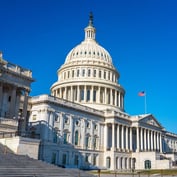Radical shifts in technology are leading to greater transparency in our daily lives. Any time we use an electronic device, we leave a record that can be searched, cross-referenced, duplicated and potentially shared. This knowledge of transparency often leads to increased ethical behavior.
A change in the legal environment is also causing an evolution in our moral and ethical conduct. Moral decisions are moving from thoughtful calculations to natural, instinctive behaviors. Our moral code of ethics is self-correcting, based on external constraints imposed on us. Transparency increases these external constraints.
I gave a seminar in New York in March. One of the case studies I presented was on medical malpractice. In the scenario, an elderly patient goes to the hospital with the families’ expectation of him dying. However, the patient does not die of natural causes but because of the hospital’s malfeasance. His family, unaware of any misconduct, quietly buries him.
Following its best practices protocol for when a fatality occurs, the hospital determines that an overdose of medication was in fact the reason for the patient’s demise. The question for the hospital is, should it now inform the family that he died from the hospital’s actions?
A lively discussion ensued at the seminar. One of the participants, a senior claim executive said, “You have no choice but to tell the truth. If more than one person knows the truth, it will surface. Even if only one person knows, his conscience will eventually demand that the truth be told.”
It is likely more cost-effective in the long run for the hospital to own up to the mistake and inform the family that their loved one did not die of natural causes. By doing the ethical thing, the hospital has imbued within its employees the basic values that promote trustworthiness in the institution. In this era of transparency, serious errors are always exposed. Cover-ups, once revealed, are infinitely more expensive than restitution.
Transparency
While traveling into Manhattan, I used my E-Z Pass to cross the bridge and go through the tunnel. At my destination’s garage, the attendant scanned me in. I then used my MetroCard that is linked to my credit card to enter the subway. I used my debit card to pay for sundries at Walgreens and took some cash back. My mobile phone pinpoints my whereabouts to anyone who wants to know where I am. Not a moment of my day am I off the grid. My life is transparent.
Technology has radically changed our lives and our expectation of privacy. We are approaching the age of perfect information. Voluminous amounts of data (Big Data) are now being generated by expert systems. More importantly, the algorithms developed to process this data into usable form grant us no quarter and give us no place to hide. Don Peppers and Martha Rogers in Extreme Trust: Honesty as a Competitive Advantage explain, “Transparency will increase because of technological progress, and progress is inevitable. It cannot be avoided, averred or slowed down.”i The information is out there; it is just a matter of it being found.
Dennis Jay, an executive director for the Coalition Against Insurance Fraud, recently reported that the Wall Street Journal and the Center for Public Integrity filed a lawsuit under the Freedom of Information Act to lift a ban that exempted Medicare data. Jay writes, “If the ban is lifted, journalists would have access to data about physician treatments, tests ordered, and a whole host of medical services. The news media would represent another powerful entity crunching medical data and potentially uncovering fraud and abuse by medical providers.”ii
Technology adds a level of discipline that compels us to be more ethical.
The other shoe
Over the last several years, whistleblowing statues and employee accountability have caused a major paradigm shift away from keeping secrets within an organization. Janet Morrissey reports in Time magazine, “In what could give new meaning to the phrase — ‘If you see something, say something’ — a clause within the financial reform legislation is offering big cash rewards to whistleblowers who report fraud and other wrongdoing at U.S.-listed companies and Wall Street banks.”iii
Tips leading to recovery will result in $100,000 minimum payouts under current law. As a result, corporate culture has changed, and that which heretofore was acceptable, is no longer. A compelling force, both moral and financial, is causing employees to become more ethical.








 July 18, 2013 at 03:17 PM
July 18, 2013 at 03:17 PM










